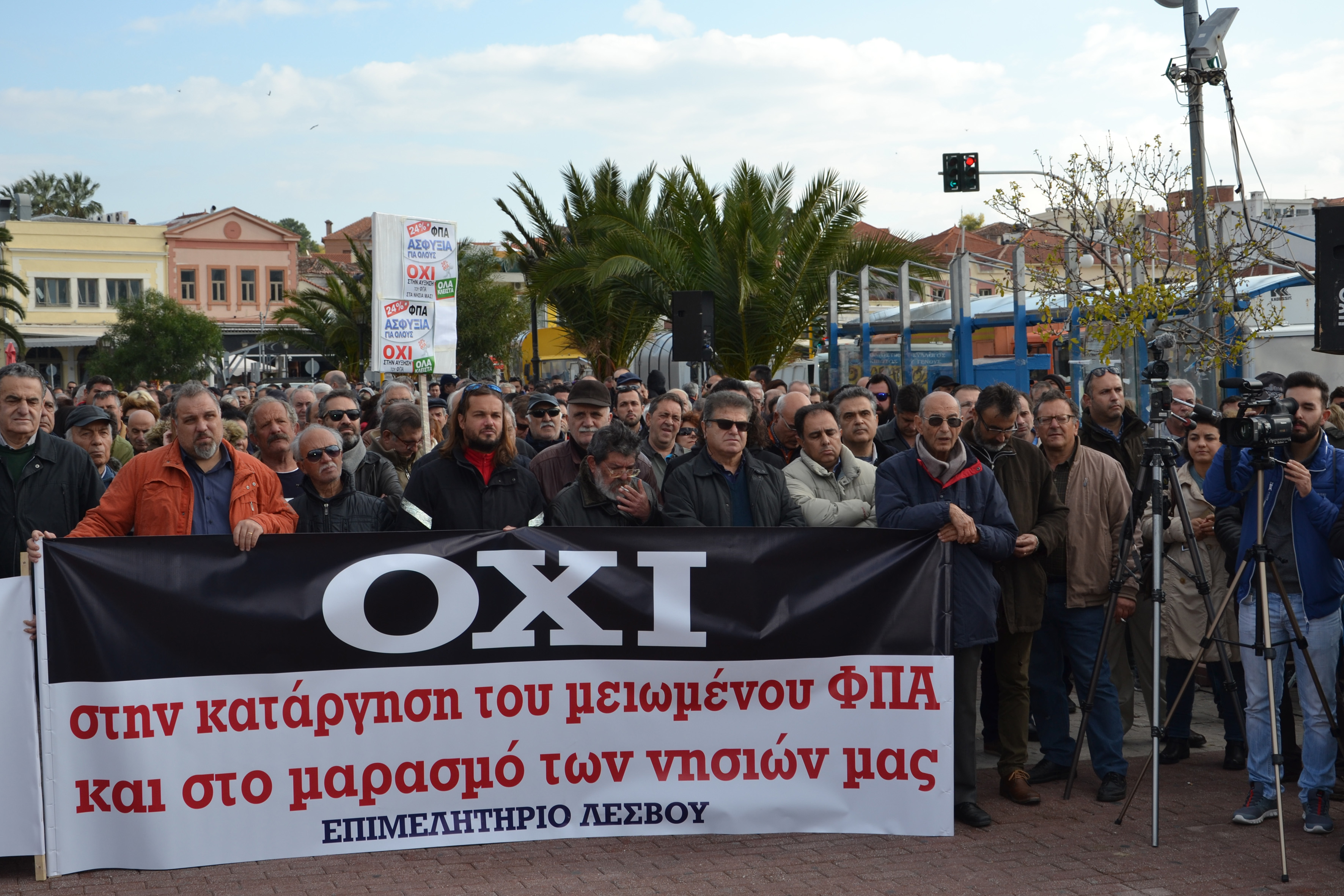The prospect of abolishing on 1 January, 2018, the lower VAT tax that is in effect on the Aegean islands is still on the table, according EU sources, who spoke to To Vima on condition of anonymity.
However, the Greek request to maintain the current tax regime on the islands will be decided personally by the European Commissioner for Economic and Financial Affairs, Pierre Moscovici, as the question is directly linked to the migration crisis, attaching a broader political significance to the issue.
The VAT tax on the Aegean and Dodecanese islands that enjoy the exemption is 30 percent lower than in other part of the country, but the government had reportedly told creditors when the one-year exemption was approved that it would not be renewed.
The end of the exemption will lead to huge tax hikes on dozens of products and will further test the battered economy of the islands, which have borne the brunt of the migration crisis.
There have been major protests on various islands including Mytilini, where protesters carried banners declaring, “NO to the abolition of the lower VAT and to the withering away of our islands.” (photo above)
The matter is the subject of continuing discussions, in which the side of creditors maintains that applying a different tax rate on the islands is not a suitable way to bolster the Greek island complex, as it creates bureaucratic red tape and increases the possibility of tax evasion.
The two sides are reportedly looking at prospective investments as an alternative way to bolster the economy of the islands, but it is unclear who would make the investments, in which sector and on what terms.
Meanwhile, of the 110 prior actions for the 22 January political approval of third bailout evaluation, about one-third is complete at this point.
There will be an additional, large package of preconditions to be met in the context of the fourth and last evaluation, before the current bailout programme ends in August, 2018.
Loan tranche of over five million euros
Regarding the next loan tranche to be received by Athens, the same sources say that the starting point in talks is five billion euros, but the final decision will depend on the size of the fiscal buffer or cushion that Greece needs to get it through the end of the programme.
The aforementioned sources say that there are plans to disburse 18.4 billion euros up until August, which would leave 27 billion in funding already approved for the third adjustment programme.
At the same time, the European Commission fully expects the government to continue auctions of foreclosed properties up until the 22 January Eurogroup and beyond.




